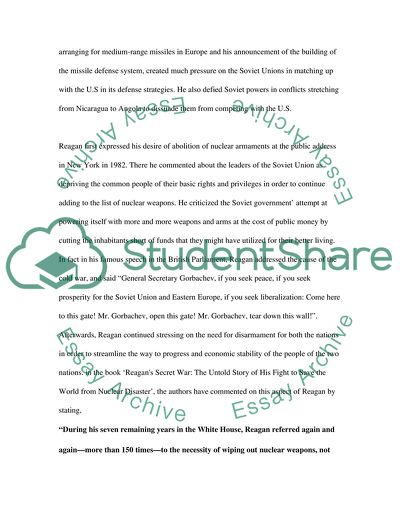Cite this document
(Ronald Reagan and the End of the Cold War Article, n.d.)
Ronald Reagan and the End of the Cold War Article. Retrieved from https://studentshare.org/history/1735505-ronald-reagan-and-the-end-of-the-cold-war
Ronald Reagan and the End of the Cold War Article. Retrieved from https://studentshare.org/history/1735505-ronald-reagan-and-the-end-of-the-cold-war
(Ronald Reagan and the End of the Cold War Article)
Ronald Reagan and the End of the Cold War Article. https://studentshare.org/history/1735505-ronald-reagan-and-the-end-of-the-cold-war.
Ronald Reagan and the End of the Cold War Article. https://studentshare.org/history/1735505-ronald-reagan-and-the-end-of-the-cold-war.
“Ronald Reagan and the End of the Cold War Article”, n.d. https://studentshare.org/history/1735505-ronald-reagan-and-the-end-of-the-cold-war.


